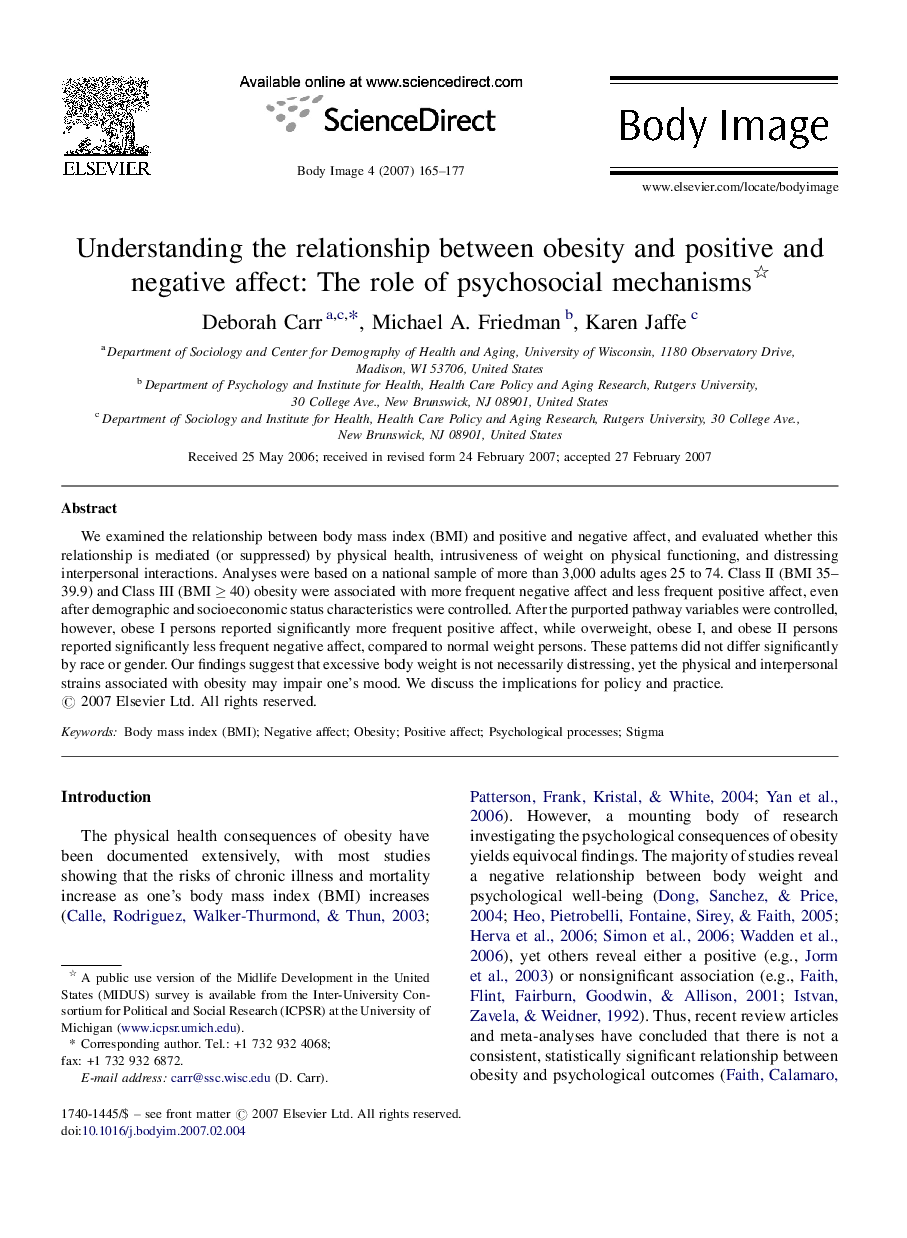| Article ID | Journal | Published Year | Pages | File Type |
|---|---|---|---|---|
| 903442 | Body Image | 2007 | 13 Pages |
We examined the relationship between body mass index (BMI) and positive and negative affect, and evaluated whether this relationship is mediated (or suppressed) by physical health, intrusiveness of weight on physical functioning, and distressing interpersonal interactions. Analyses were based on a national sample of more than 3,000 adults ages 25 to 74. Class II (BMI 35–39.9) and Class III (BMI ≥ 40) obesity were associated with more frequent negative affect and less frequent positive affect, even after demographic and socioeconomic status characteristics were controlled. After the purported pathway variables were controlled, however, obese I persons reported significantly more frequent positive affect, while overweight, obese I, and obese II persons reported significantly less frequent negative affect, compared to normal weight persons. These patterns did not differ significantly by race or gender. Our findings suggest that excessive body weight is not necessarily distressing, yet the physical and interpersonal strains associated with obesity may impair one's mood. We discuss the implications for policy and practice.
